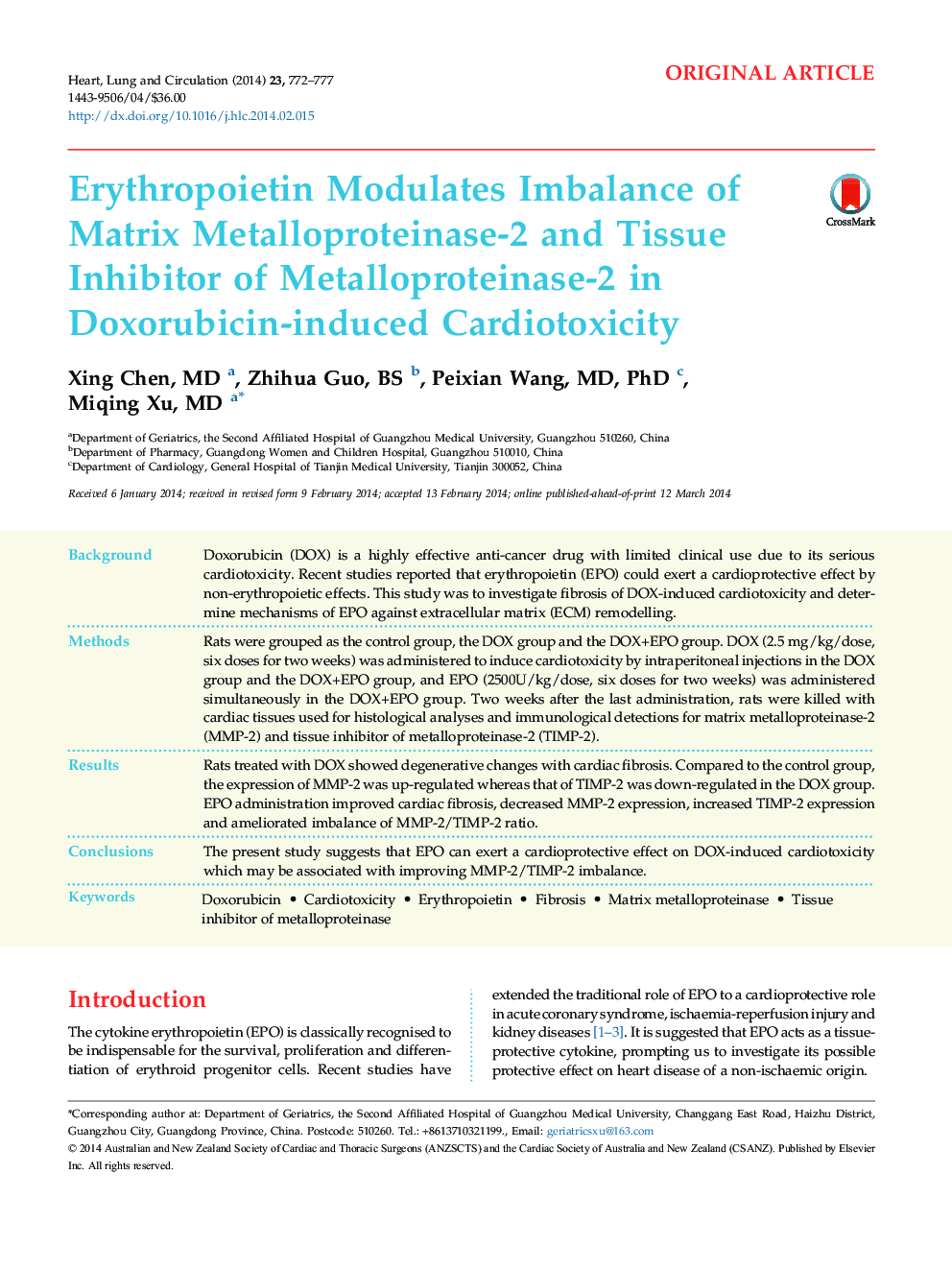| Article ID | Journal | Published Year | Pages | File Type |
|---|---|---|---|---|
| 2917749 | Heart, Lung and Circulation | 2014 | 6 Pages |
BackgroundDoxorubicin (DOX) is a highly effective anti-cancer drug with limited clinical use due to its serious cardiotoxicity. Recent studies reported that erythropoietin (EPO) could exert a cardioprotective effect by non-erythropoietic effects. This study was to investigate fibrosis of DOX-induced cardiotoxicity and determine mechanisms of EPO against extracellular matrix (ECM) remodelling.MethodsRats were grouped as the control group, the DOX group and the DOX+EPO group. DOX (2.5 mg/kg/dose, six doses for two weeks) was administered to induce cardiotoxicity by intraperitoneal injections in the DOX group and the DOX+EPO group, and EPO (2500U/kg/dose, six doses for two weeks) was administered simultaneously in the DOX+EPO group. Two weeks after the last administration, rats were killed with cardiac tissues used for histological analyses and immunological detections for matrix metalloproteinase-2 (MMP-2) and tissue inhibitor of metalloproteinase-2 (TIMP-2).ResultsRats treated with DOX showed degenerative changes with cardiac fibrosis. Compared to the control group, the expression of MMP-2 was up-regulated whereas that of TIMP-2 was down-regulated in the DOX group. EPO administration improved cardiac fibrosis, decreased MMP-2 expression, increased TIMP-2 expression and ameliorated imbalance of MMP-2/TIMP-2 ratio.ConclusionsThe present study suggests that EPO can exert a cardioprotective effect on DOX-induced cardiotoxicity which may be associated with improving MMP-2/TIMP-2 imbalance.
